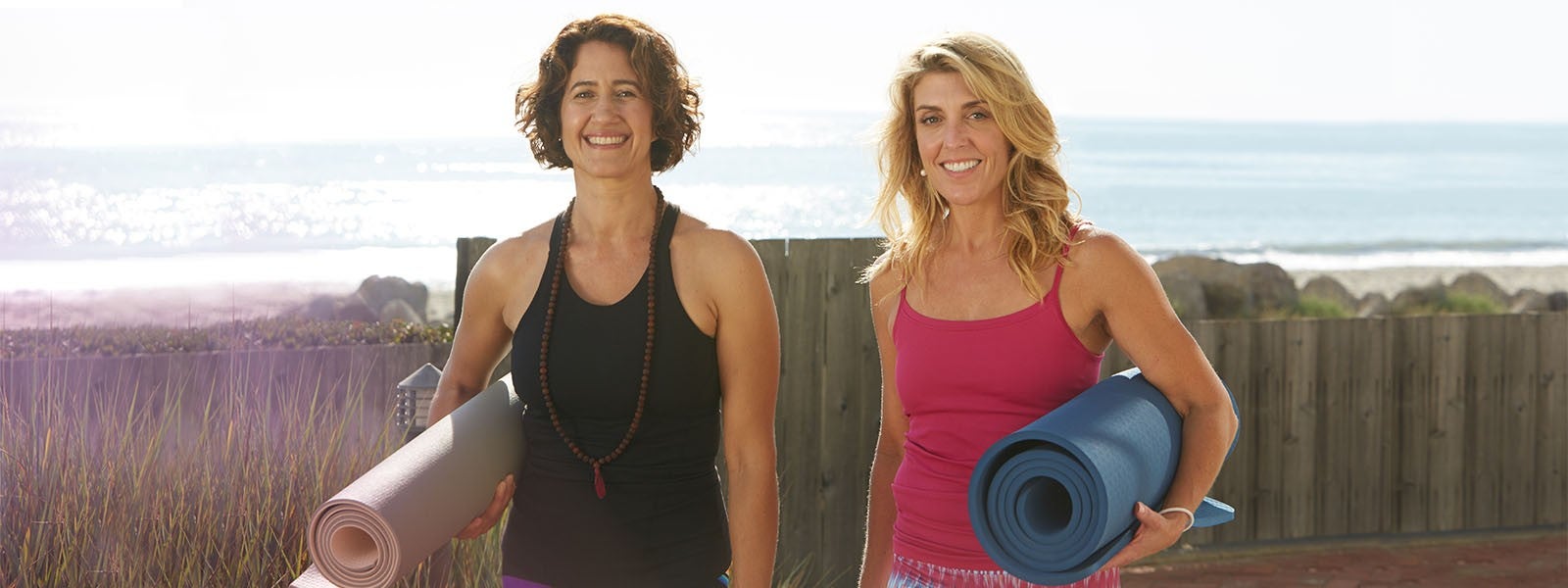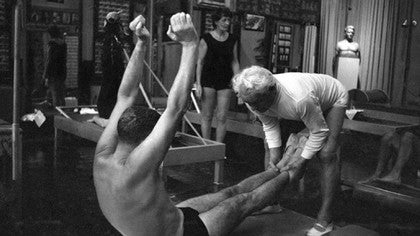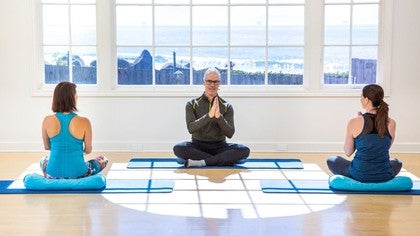
So You Want to Host a Pilates Retreat
As I’m writing this, in July of 2021, Covid-19 is still impacting travel plans as well as many other parts of daily life depending upon where in the world you are located. With so much uncertainty about variants and availability of vaccines, it’s understandable to think of fitness retreats in exotic locations as a casualty of the pandemic, together with all-you-can-eat buffets and try-before-you-buy testers in the makeup aisle.
Pilates retreats provide an opportunity for personal and professional development, building relationships, and enhancing the reputation of Pilates. With people itching to travel again, an increased awareness of the importance of mental and physical health, and the emergence of dedicated travel agents and turnkey hosting operations catering to fitness retreats, this might actually be the right time to make your dreams of hosting a Pilates retreat into reality.
While travel may look different these days, it’s simply evolved, in line with the rest of our lives, to include modifications such as physical distancing and limited capacity requirements.
“At the moment, running retreats is tough,” says Jamie Isaac, a San Diego-based Pilates instructor and co-founder of Azulfit, a fitness retreat in Las Palmas, Spain. Right now, Isaac suggests opting for a local or “in-town” retreat and utilizing a turnkey retreat center offering a free cancellation policy in the event that your retreat cannot be held due to Covid. Staying close to home eliminates the need to book or rebook flights and navigate shifting national and international travel restrictions.
“Consider building your tribe locally,” says Karissa Isaac, co-founder of Azulfit. A successful local retreat can create buzz around your retreat hosting abilities, which can pay off later when far-flung destinations are back on the menu. When planning sessions and workshops, keep local restrictions on gathering sizes in mind. Have a plan B for what you will do if rules change during your retreat. For example, if indoor or outdoor group sizes are reduced, will it be possible for your group to split into two or more smaller groups, and if so, can you still offer the same quality experience?
“Many retreats are planned ten to 18 months in advance, so the requirements will likely be much different in the future than they are today,” says Erik Aiple, CEO and founder of Fit 4 Travel, a wellness travel company based in Fort Lauderdale, Florida, that works with fitness and wellness professionals who are looking to lead a retreat or grow their existing retreat business.
Pandemic aside, successful retreats share certain elements no matter what is going on in the world.
“When you’re thinking about hosting a retreat, begin with an authentic and honest why,” says Jamie Isaac. Be intentional about what you hope to share with others, whether it’s something that comes from the heart, or a skill, lifestyle, or body of knowledge. Have a realistic perspective on why someone would want to come join you for a week of learning and connection, and more than that, why would they pay money for it? When curated thoughtfully (both in terms of content and participants), retreats offer an unparalleled opportunity to build community and dive deep into a subject matter in an abbreviated amount of time.
Location plays a big role in retreat success, as it affects the cost of getting there, travel time required, as well as weather and season. In addition, the destination must support the retreat experience you are hoping to offer. It can be helpful to go back to your “why” when you are narrowing down locations. If your vision involves Mat Pilates workouts on the sand and daily meditations under gently swaying palm trees but you book a retreat center in a landlocked location, you’re already out of alignment with your why. Consider your destination choice, too, from the perspective of your participants. This is where local destinations or in-town retreats (in which participants set aside time for intensive study but return to their own homes each night) can make sense, as they pose fewer barriers to participation. They also tend to be more affordable.
In fact, having an Instagram-worthy setting may not be necessary at all. “Students want to feel connected through community. That is usually more important than the destination itself,” says Aiple of Fit4Travel. “There is something special about connecting with a group of like-minded individuals who share a common interest of personal growth and development.”
Once you’ve chosen the right location, the next step is getting people to attend. This is where having a community of students or clients with whom you have built a shared trust and rapport is critical. Even with a devoted following, you will most likely need to expand your potential pool of retreat participants. You need to craft a strategic and executable advertising plan, which includes defining your audience, understanding how to best reach them, and the desired call to action (signing up). Aiple suggests offering a discount to those who book early or for the first select number of participants who commit. Traditional digital marketing and posters in local Pilates studios or fitness centers can be effective, he notes, but personalized invitations are even better. Aiple suggests sending personalized emails to students who would benefit from attending, or even better, inviting them in person.
While hosting a Pilates retreat sounds like a dream come true for most people, it’s helpful to remember that, as Isaac puts it, “Retreats are not your next holiday.”
Forget about getting a “free vacation.” As a host, you will be doing a lot of work, with very little down time. Isaac recommends outsourcing as much of the non-teaching work as you can. He recommends choosing a full-service or turnkey retreat center that will take care of everything for you, from grocery shopping to liability waivers to airport transfers.
There is a lot to think about in facilitating an extraordinary retreat experience, and it’s too much when you are also trying to focus on offering high-quality Pilates classes.
“As a retreat owner, you'll have all manner of things happening in the night or through the day,” says Isaac. “You need a wonderful team to take care of these things within their specific areas. That way you can relax and focus on what you do best.” In the end, this will mean the experience will be better for both you and your guests.
Comments
No comments yet. Be the first!













You need to be a subscriber to post a comment.
Please Log In or Create an Account to start your free trial.